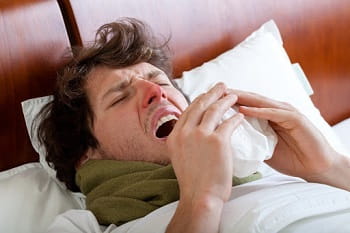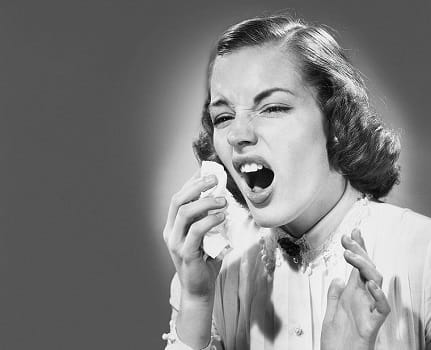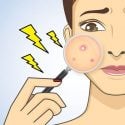Why Don’t We Sneeze While We Sleep?
Sneeze…What an eerie word these days we are struggling with the Coronavirus epidemic. So if someone sneezes next to you, it gives you the feeling that you need to get away from them at the speed of light. Well, have you ever wondered why we don’t sneeze while we sleep?
Why Do We Sneeze?
Sneezing is the event of expelling foreign substances that enter our body through respiration.
Sneezing occurs due to irritants affecting nasal mucus. By sneezing these irritants (dust, pollen, microorganisms etc.)) is essentially the removal of the nose and throat is provided.
The biological process for sneezing is as follows.
- Foreign particles pass through the nasal hair and enter the nasal cavity before reaching the mucus membranes in the nasal cavity.
- These particles trigger the release of histamines, organic compounds composed primarily of nitrogen particles.
- Histamines irritate the nerve endings in nasal mucous membranes.
- The irritation causes signals to be sent to the brain.
- Brain signals are directed to the pharyngeal and tracheal muscles that create larger openings in the nose and throat.
- Sneezing occurs.
Why Don’t We Sneeze While We Sleep?
Because we are in a horizontal position while sleeping, mucous membranes swell and become more sensitive to external stimuli. This is why we should be more prone to sneezing during sleep. However, this sensitivity is balanced by the decrease in the number of particles that can enter our nose due to the fact that we move less during sleep and the lack of air flow in our bedroom.
When we wake up, foreign particles (dust, pollen, microorganisms, etc.) can stimulate nerve cells in the nose. The nerves then send signals to the brain to initiate sneezing to get rid of the things that irritate it.
Our brain, which wants to experience an uninterrupted sleep experience, prevents the release of certain neurotransmitters (chemicals that enable communication between neurons or between a neuron and another cell) during the REM (Rapid Eye Movement) phase of our sleep, where we dream, making motor neurons invulnerable. In this process called REM atonia, all reflexive responses, including sneezing, are suppressed.
In the sections called NREM (non-REM period), which are outside the REM phase and make up the majority of our sleep, although our muscles can work, trigeminal motor neurons that trigger sneezing in our nose continue to be suppressed.
If the nasal mucosa is overstimulated during sleep, our brain stops suppression and makes the muscles and motor neurons work. With a short wakefulness, sneezing occurs and sleep continues.
However, vegetative states also have sleep and wake cycles and may sneeze only during wakefulness cycles.
References
- https://scienceillustrated.com.au/blog/science/ask-us-can-humans-sneeze-while-sleeping/
- https://www.rd.com/health/wellness/what-happens-when-you-sneeze/
- https://www.tuck.com/can-you-sneeze-in-your-sleep/
- https://tr.wikipedia.org/wiki/N%C3%B6rotransmitter









